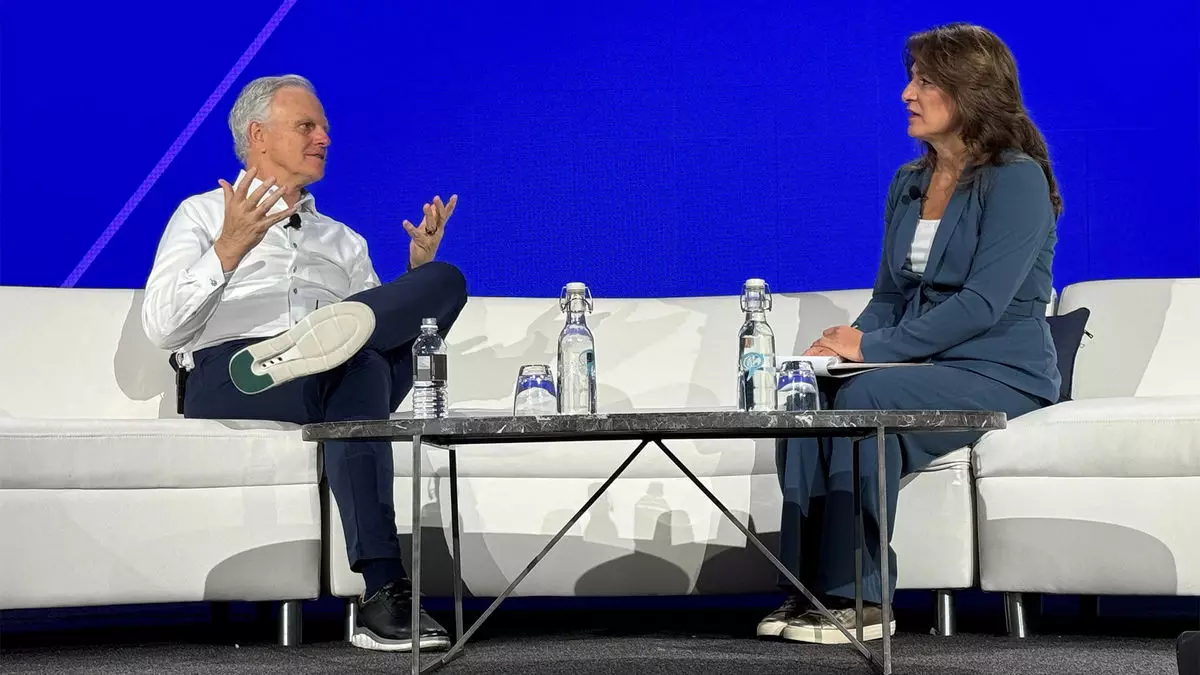In the rapidly evolving world of aviation, where sustainability has become a central focus, Breeze Airways CEO David Neeleman stands out as a contrarian. During the Phocuswright Conference, he boldly articulated his skepticism regarding Sustainable Aviation Fuel (SAF), which he labeled as “nonsense.” In a landscape where many industry leaders are pushing for greener alternatives to combat climate change, Neeleman’s perspective raises a critical question: can the push for sustainability truly balance against the economic realities of the airline industry?
Neeleman’s argument primarily revolves around the economic implications of implementing SAF on a global scale. Citing the International Air Transport Association (IATA), he pointed out that the transition to SAF would impose an astronomical increase of $187 billion in operational costs on airlines, overshadowing the industry’s annual profits of $32 billion. This stark contrast highlights a fundamental tension in the discussions surrounding sustainability—can environmental aspirations coexist with the financial viability of the airline sector? Additionally, Neeleman’s assertions raise concerns about job security within the industry, suggesting that embracing SAF without a sustainable economic model could jeopardize many livelihoods.
Digging deeper into the economic ramifications, Neeleman also warned of the negative repercussions for industries that currently provide traditional jet fuel. He posited that diverting resources towards the production of SAF might harm diesel fuel refineries, thereby creating a ripple effect that could destabilize the broader fuel market. If airlines were to take a large portion of agricultural products for fuel, this, according to Neeleman, could threaten food supply chains, inflate food prices, and exacerbate global hunger issues. Such a viewpoint challenges the prevailing narrative that prioritizes environmental fixes without fully considering their external impacts.
One of the most provocative elements of Neeleman’s critique is his assertion that many industry executives are trapped in a cycle of „groupthink.“ According to him, there is a pervasive fear of backlash from environmental organizations and regulators, leading to a lack of honest discourse around the practicality of SAF. This highlights an important aspect of corporate decision-making in the aviation industry: the fear of dissenting from popularly accepted norms can stifle innovation and critical thought. By voicing his concerns unabashedly, Neeleman positions himself as a rare maverick willing to challenge the status quo.
David Neeleman’s comments at the Phocuswright Conference serve as a call for a nuanced conversation around the future of aviation fuels. As the industry grapples with the imperative to reduce carbon emissions, it is crucial to weigh the economic ramifications alongside environmental goals. The dichotomy presented by Neeleman invites stakeholders to reconsider their strategies and the feasibility of sustainable innovation in a sector that thrives on financial stability. Balancing the need for sustainable solutions with economic realities may ultimately require more than just a shift in fuel sources; it may demand a comprehensive overhaul of the entire operational framework within which airlines operate.


Napsat komentář